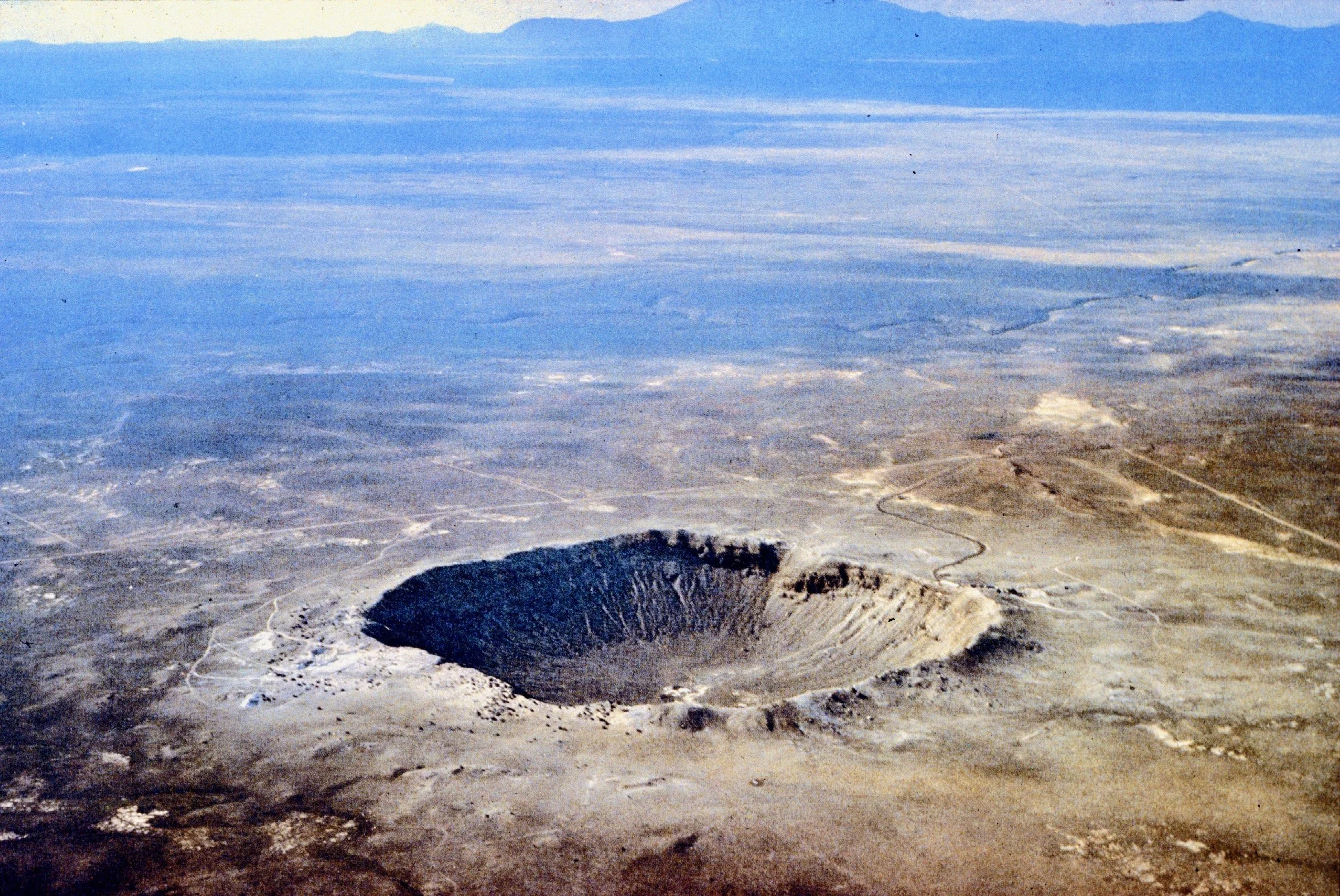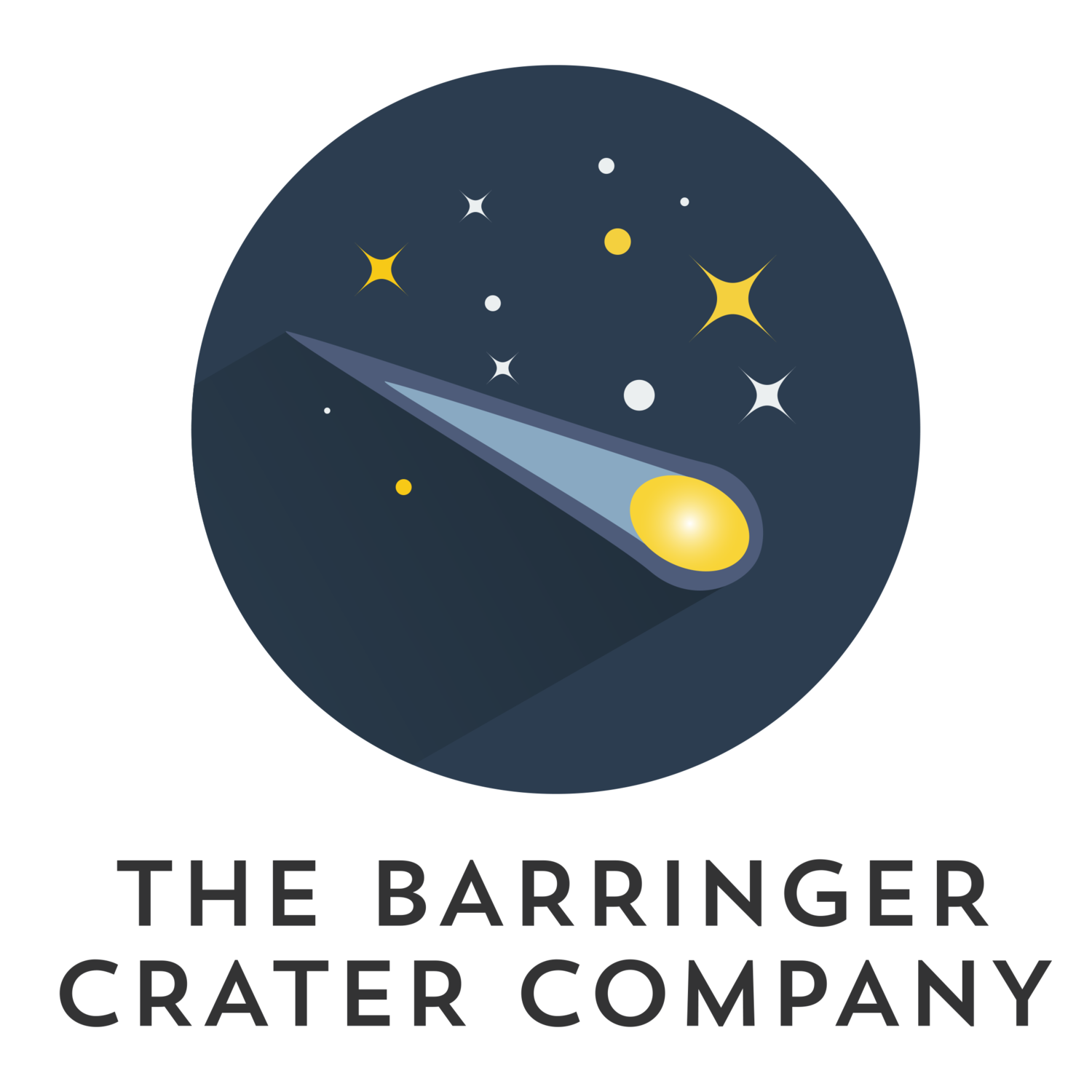
Research Grants
Barringer Family Fund
The Barringer Family Fund for Meteorite Impact Research has been established as a memorial to recognize the contributions of Brandon, Moreau, Paul, and Richard Barringer to the field of meteoritics and the Barringer family’s strong interest and support over many years in research and student education. In addition to its memorial nature, the Fund also reflects the family’s long-standing commitment to responsible stewardship of The Barringer Meteorite Crater and the family’s steadfast resolve in maintaining the crater as a unique scientific research and education site.
Each year, the Barringer Family Fund awards a small number of competitive grants of 2500-5000 USD to support MA, PhD, and postdoctoral students as they carry out field research at known and suspected impact sites around the world. Between its establishment in 2002 and the present, the Barringer Family Fund has supported the research of over 50 students.
You can apply for a Barringer Family Fund Grant by clicking the button below that will redirect you to the electronic application hosted by the Lunar and Planetary Institute.
Applications are due in April each year.
The Barringer Crater Company and its scientific advisors endorse efforts to make the field of Meteoritics and Planetary Science more welcoming to a diverse array of talented scientists. Since 2002, The Barringer Family Fund for Meteorite Impact Research has awarded almost half of its research grants to women, based on the scientific merits of their proposals and the quality of their work. The Barringer Crater Company has a strong interest in encouraging and supporting scientific exploration and research within the field of meteoritics for women as well as men, and expects all associated scientists to treat their colleagues and students with mutual respect. Please find the current recipients and their project descriptions by clicking on the button below.
The Barringer Invitational Lecture
Since 1999, the Barringer Crater Company has sponsored a public lecture delivered by an invited speaker at the Annual Meeting of the Meteoritical Society. These speakers often offer a broader perspective on the role of meteoritics and planetary science in the modern world. (Due to COVID-19 and the cancellation of the meeting, there was no 2020 recipient)
Barringer Invitational Lecture Recipient 2023:
Professor Amy Mainzer, Lunar and Planetary Laboratory, U of A
Title: Earth-Approaching Asteroids and Comets: Opportunity and Risk presented at the Meteorological Society Conference, August 14, 2023
In support of THE METEORITICAL SOCIETY
Every year, The Barringer Crater Company sponsors the Barringer Medal, the Barringer Invitational Lecture, and travel grants for students to attend the annual Meteoritical Society meetings.
The Meteoritical Society is a non-profit scholarly organization founded in 1933 to promote research and education in planetary science with emphasis on studies of meteorites and other extraterrestrial materials, including samples from space missions, that further our understanding of the origin and history of the solar system.
To learn more, go to the Meteoritical Society site by clicking the button below.
The Barringer Medal
The Barringer Medal and Award recognize outstanding work in the field of impact cratering and/or work that has led to a better understanding of impact phenomena. The Barringer Medal and Award were established in 1982 to honor the memory of D. Moreau Barringer Sr. and his son D. Moreau Barringer Jr. and are sponsored by the Barringer Crater Company. The senior Barringer was the first to seriously propose an impact origin for the crater that now bears his name. For nearly two decades he defended this theory against the vast majority of scientific opinion. The junior Barringer was the first to identify the Odessa crater, the second known impact site on Earth.
Barringer Medal Recipient 2023:
Birger Schmitz
Professor of Geology affiliated with the Astrogeobiology Lab, Department of Physics, Lund University Lund, Sweden and the Robert A. Pritzker Center for Meteoritics and Polar Studies, Field Museum of Natural History, Chicago, IL 60614, USA
History of Recipients




